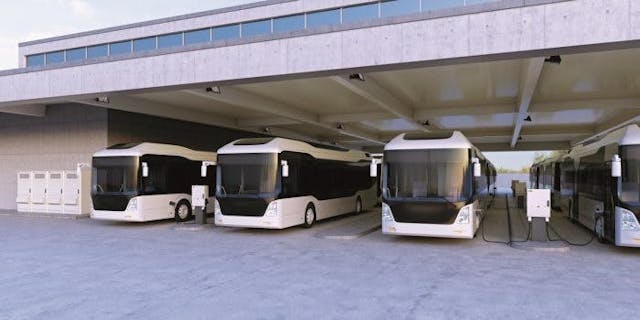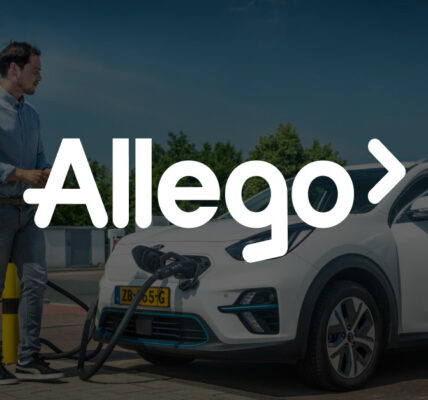The Toronto Transit Commission has unveiled a new smart charging management system to support its 100 electric bus fleet at the Birchmount, Eglinton, Arrow, and Mount Dennis garage depot.It is one of the largest transit fleet charging systems located at a single location in Canada.
“We are proud to be paving the way for transit electrification across North America, and bringing new, clean, quiet vehicles to customers and employees across the City of Toronto,” said Greg Percy, the Toronto Transit Commission’s (TTC) interim CEO, in a press release detailing the project done in partnership with PowerON Energy, BetterFleet and ABB E-mobility.
PowerON is a subsidiary of Ontario Power Generation. It is a turnkey charging solution provider and is overseeing the installation, operation and maintenance of the TTC’s bus charging system.
“By collaborating with industry leaders like BetterFleet and ABB E-mobility, we’re able to develop and implement innovative technologies tailored to our clients’ unique needs,” says Keegan Tully, CEO of PowerON Energy Solutions, in a press statement.
“This project with the TTC demonstrates…bring[ing] together the best in the industry to drive the transition to zero-emission public transit.”
PowerOn selected U.S.-based intelligent solutions provider, BetterFleet, for its smart charging software, which is integrating with ABB’s charging hardware.
The project is receiving a $2.5 million grant from Natural Resources Canada’s Electric Vehicle Infrastructure Demonstration Program.
Charging with a management solution
According to Daniel Hilson, CEO of BetterFleet, the company’s charging management system is “really about orchestrating the depot” by aligning vehicle schedules with charging needs.
For example, the BetterFleet software prioritizes charging based on each bus’s duty schedule. This helps maintain service reliability, Hilson explains, in an interview with Electric Autonomy.
The system also accounts for dynamic factors such as buses arriving with different states of charge, vehicles needing quick turnaround and potential disruptions like charger malfunctions.
Using a smart charging system means the TTC can better avoid costly in front of the meter electrical infrastructure upgrades and optimize its energy costs, while ensuring buses have reliable charging support.
Meanwhile, the ABB hardware includes a combination of overhead pantograph in Birchmount garage and ground-level plug-in chargers at the Eglinton, Arrow, and Mount Dennis depots. Currently, these chargers are in three of the garages. Construction on a fourth garage is underway and there are plans to expand to eight garages in total.
The ABB chargers are designed to support sequential charging. This allows specific dispensers to receive varying power allocations rather than distributing power evenly across all chargers.This provides greater flexibility and efficiency in managing the TTC’s power usage, says Hilson.








